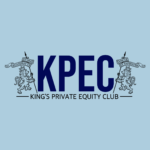
By Jean-Christophe Basoglu, Research Analyst at King’s Private Equity Club
The private equity (PE) industry in France has experienced a positive trend over the years in regard to buy and build transactions. In comparison with the European PE market, France has acquired numerous investors with significant amounts of capital. In recent years, with the outgoing pandemic, French PE firms tended to focus on tech, health, and education-related companies which seem to be more resilient and were the best performing industries during the pandemic. These sectors offer stable long-term perspectives which help to lower uncertainty and mitigate adverse risks. Some French PE firms were able to stand out and compete against top PE funds. Among these, Ardian and PAI Partners, with $125 billion USD and $13.6 billion USD assets under management respectively, performed significantly well.
Overview of investment activity
Paris-headquartered firms have a wide range of investments across numerous industries. For instance, most of the PE activities are concentrated in the capital Paris. In 2016, France’s PE firms raised over €14.7 billion in total capital commitment. Out of €14.7 billion, €4.1 billion was raised by a Paris-based PE firm which shows the influence of Parisian PE funds over the French PE industry. However, some PE activities are also located in the South of the country, precisely in the French Riviera state which attracts millions of tourists every single year.
Brexit represents an unprecedented opportunity for France. With Germany, the French PE market is becoming the main market for buy-outs in Europe. In 2019, a total of 238 buy-out transactions were closed in France.
Exit trends of 2019, in the French PE market, amounted nearly to €3.05 billion resulting from the sale of 748 companies. In France, equity sponsors’ exits usually occur through sales to strategic buyers or secondary leveraged buy-out transactions. However, PE exits through initial public offerings (IPOs) have not been a significant feature of the French market. Indeed, IPOs have decreased by 32% in 2019 compared to the period 2014-2018.
Venture Capital (VC) firms also play an important role in the country as France has gradually become one of the European Start-up hubs. The strength of investments in start-ups in France has also been boosted by an active French start-up universe. First, a major incentive is the creation of ‘Station F’ by billionaire Xavier Niel, which was inaugurated in 2017. Station F is the world’s biggest campus for start-ups, gathering a whole entrepreneurial ecosystem under one dome. The space provides accommodation for 1000 start-ups and early-stage businesses, as well as business partners, such as Meta, Google, and Microsoft.
Another major initiative is the work of ‘French Tech’ to promote the French start-ups’ ecosystem. ‘French Tech’ is a government initiative, which refers to a French trademark awarded to city centres to promote their start-up ecosystem. French Tech also refers to all of the people who work for French start-ups in France or abroad (entrepreneurs, primarily, but also investors, engineers, developers, designers, large groups, associations, and research institutes), which are devoted to the growth of start-ups and to their global impact/power, under a common desire to promote ‘French Tech’ for innovative French companies.
In line with this growing entrepreneurial culture in France, Brexit has also contributed to the growth of VC firms in France. Raffi Kamber and Jeremy Uzan, founders of Singular Capital (a newly created French VC firm in Paris that has finished raising their initial fund of €225 million), believe in what they call the European idea. They wish to build a true European VC fund and argue that as a result of Brexit, London should no longer be considered a hub for European tech investments. Most of their initial investments were made from Foreign Direct Investment (FDI) and this is also the case for other most French VCs firms.
In general, French private equity firms have experienced an increase in their investments coming from abroad. This can be justified by the post-Brexit environment but also by the investor-friendly policies of President Macron who has reduced some taxes and completely eliminated others such as the wealth tax, in order to attract FDI as well as boost the competitiveness of the financial sector.
Limitations of the market
Although the French PE market seems to be attractive to investors and has been performing considerably well over the years, there are some limitations that should be underlined.
One is that most French PE firms tend to invest in similar sectors and in similar areas. France is a geographically diverse country and some of its regions are neglected in the economic expansion of the country, such as the Hexagone du Vide, a region of central France characterised by a lack of infrastructure investment which has led to depopulation and loss of value. Such disparities within the same country can lead to frustration among investors.
Another limitation is the heavy tax system. Although the current president has led a reduction in taxes, it is uncertain whether the next president might follow a similar policy. France is a diverse country with diverse political ideas and parties. Despite the current investor friendly policies, there is no guarantee this will continue in the near future.
Conclusion
The French PE market has shown promising growth over the last 10 years, generating a net internal rate of return of more than 10%. The investor-friendly policies and the changes in Europe due to Brexit have led to the arrival of tremendous amounts of FDI into the country. With the right policies toward investors and applying an international strategy by diversifying their portfolio, French PE firms can expect a gradual and sustainable growth over their deal values.

Hi! Do you use Twitter? I’d like to follow you if that would be ok.
I’m definitely enjoying your blog and look forward to new
posts.
Outstanding story there. What happened after? Take care!